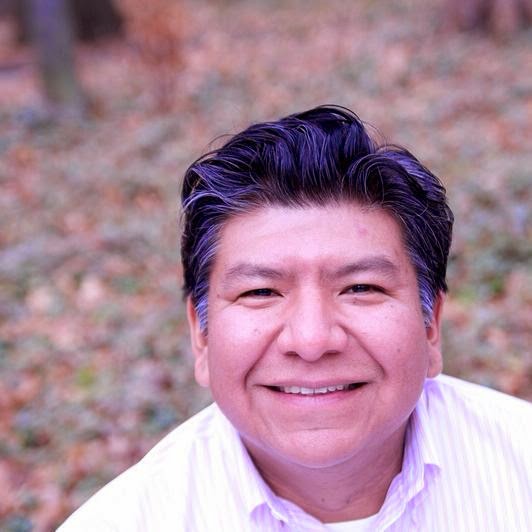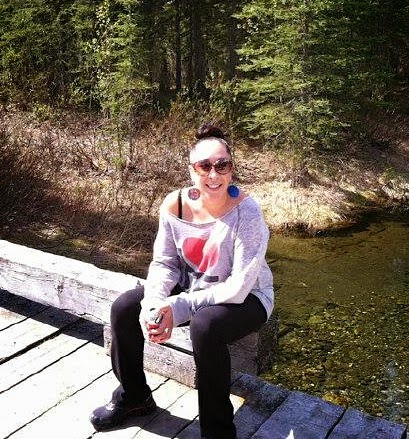It's never too late to attain a degree.
I did not walk in my high school graduation and did not
receive my diploma. It was a rather
unfortunate event, which I blamed on the overextension of myself during my
sophomore, junior and senior years. I
failed English by a faction of a point and as a life lesson I was not awarded a
passing grade. Oddly, I had more than
enough credits to graduate and a rather high GPA. Yet, English was a required course and my
teacher would not budge on the matter.
This story starts at the point when I found out I was not
going to graduate with the Yuma Union High School class of 1987. I was in shock and fairly numb from the
information. I did not fight the
decision and I am not sure, at the time, I completely cared about the outcome,
as I asked my father if he would mind if I dropped out of high school the
previous year. He, without much emotion
or break in conversation said, “sure, but you’ll have to get a job and start
paying rent.” I decided, at that point,
high school wasn’t a bad place after all.
I think back on those days at the beginning of the summer of
’87 and how furious my father was at me.
I think about how my very good friends and even my best friend were
slightly disappointed in me. It was a
tough time. I immediately took the GED
test and received my certificate soon after high school diplomas were arrived
in hands of expectant budding adults and professionals across Yuma County. There is a side of this story that I will
spare you because this story has to do with what can happen for a person with a
GED in hand and a little bit of curiosity about the world around them.
I have found in my years in higher education that a good
many Native people find themselves in a place where the next step in an
academic or professional career involves a GED.
It also takes mastery of learning where one would like to place their
energy in finding the best life for themselves and those they care about.
In years following my high school career, I took voice lessons
in preparation of becoming an opera singer.
I sang for many years, but found I lacked the commitment needed to work
diligently at creating the voice I wanted to hear coming from my body. Once I believed that I would not reach my
proposed goal, I left my singing path. I
was such a tough critic of my performance and still am to some extent.
I moved on through various other interests until I found
cooking. I loved to cook and did,
eventually, make it to culinary school.
Well, I did for a year and then decided that I wanted a more raw
experience and training that can only be found in the hassle and grime of a
restaurant kitchen. I, again, worked at
it for many years, but when it came to a point of reckoning, I found that I was
not committed enough to the profession of serving [dealing] with people. Food service is a very rough and demanding
life; although, I would not trade those years of customer service and human
interaction training for anything. I
firmly believe that many who have worked or work in the service industry would
strongly agree.
I finally reached a point where I decided that I wanted to
pursue a bachelor’s degree and like many life changing decisions, this did not
come easy. It took much coaxing and work
from friends to move me into a space where I believed that I could actually or
eventually attain a degree from a university.
As you may recall, I am extremely critical of my performance, which
often hindered my motivation to try.
I did have much support from a great many friends. I even had a friend call in a favor to
arrange a special interview with, much to my surprise, all the department
chairs of Trinity College in Connecticut.
I failed miserably at that interview, but they were encouraging and
helpful in motivating in my new found application to higher education. It was not that I failed that kept me going,
but the support in helping me find clarity in my personal and professional
development that kept me engaged in an academic life.
I eventually found a pathway into the academy through a
continuing education program at North Carolina State University. Through this program, I matriculated into
their Political Science degree program and did well enough to receive a decent
GPA to transfer into my first and second pick schools in Washington, DC. At this point in my life, I began to have an
urge in understanding how policy was developed for tribal communities and I
believed that the best schools for this learning were in the DC area. I was not sure any university in that area
had an American Indian policy program, but I was going to spearhead an effort
to ensure that something would be in place once I left my school of
choice. I was younger then and, luckily,
found my optimism in the students I eventually began to work with at American University
(AU).
I transferred into the School of Public Affairs at AU and
was offered a position as the Director of the Washington Semester American
Indian Program – Washington Internships for Native Students (WINS) at the same
institution a few months after receiving my undergraduate degree. I eventually attained a graduate degree in
Organization Development at the same university and now work to develop a
better understanding of how universities and colleges can improve their systems
to support Native students and professionals in higher education.
We, my friends and colleagues in higher education, recognize
that life, in general, is not always easy, but we know that many Native people
who enter the halls of academia come with a very unique experience that is not
always conveyed through the individual or correctly translated in collected
statistic and data. As we continue to
bear down in our work at increasing our perspective and voice in the academy,
we know that each time a Native student slowly marches along to that motivation
dirge “Pomp and Circumstance,” there
is hope in a future. It may not be
immediately bright for everyone, but it increases through the radiant spirit of
the Native student who manages through the challenges of attaining a degree in
higher education. It literally brings
tears to our eyes to watch students make their way up to that stage, as if they
are being handed a baton of sorts to carry on in the next iteration of Native
people in America. We watch and hope
that each time they step off that stage into the audience they will remember
that in their choices and commitment to their personal future, they invest in a
larger picture of success for all Native people.
Although Native higher education policy is not where I
started out as a curious young man, it is where I ended up…for now. I cannot help but be inspired by all the
students and people I come in contact with on a daily basis. I believe that it is never too late to attain
a degree in higher education. It is a
challenging decision and commitment over time, but it often works to be a
healthy choice for the individual and American Indians, Alaska Natives, and
Native Hawaiians across the country. I
did not grow up thinking that I could do anything I wanted, but I did grow up
with the ability to push up against that enough to try.
Jack
Soto is Navajo, Black-Streaked-Wood People, and Cocopah, Bird Clan. Jack served
as Director of the Washington Semester American Indian Program – Washington
Internships for Native Students at American University in Washington, DC.
Additionally, he received his M.S. in Organizational Development and B.A. in
Political Science at American University. Currently, he works to impact
higher education institutional support systems of Native students as Co-Chair
of the National Coalition for the Advancement of Natives in Higher Education.
He lives in Yuma, AZ, preparing for doctoral work while traveling around the
country hanging out with friends and colleagues pontificating, plotting,
presenting and playing.



Comments
Post a Comment